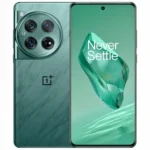The BMW Toyota Hydrogen Partnership represents a significant step forward in the automotive industry’s quest for sustainable solutions. By focusing on hydrogen fuel cell vehicles, these two automotive giants are exploring alternatives to traditional electric vehicles, aiming to reduce emissions and enhance energy efficiency. Their collaboration has already led to the development of innovative models like the Toyota Mirai, showcasing the potential of hydrogen technology. With BMW hydrogen cars on the horizon, this partnership is poised to redefine the future of sustainable automotive technology. As the automotive landscape shifts, the joint efforts of BMW and Toyota may well set the standard for a new generation of eco-friendly vehicles.
In the realm of eco-conscious driving, the collaboration between BMW and Toyota stands out as a pioneering effort to harness hydrogen as a viable energy source for vehicles. This alliance not only underscores their commitment to advancing hydrogen fuel cell technology but also highlights the potential of hydrogen-powered automobiles as a complement to electric vehicles. As they work together to overcome challenges in the hydrogen market, the emergence of models such as the Toyota Mirai signals a promising future for hydrogen vehicles. With BMW’s plans to introduce hydrogen-powered options, consumers may soon have more choices in the sustainable vehicle sector. Ultimately, this partnership is a testament to the automotive industry’s shift towards innovative and cleaner alternatives.
Understanding the BMW Toyota Hydrogen Partnership
The BMW Toyota Hydrogen Partnership represents a significant collaboration in the automotive sector, particularly in the realm of sustainable technology. Initiated in 2011, this partnership has focused on advancing hydrogen fuel cell technology as a viable alternative to traditional electric vehicles. Both companies have invested heavily in research and development, aiming to create innovative vehicles that produce minimal environmental impact. By pooling their resources and expertise, BMW and Toyota are not only enhancing their product lineups but also contributing to a larger movement towards carbon neutrality in the automotive industry.
At the heart of this partnership is the shared vision of promoting hydrogen as a clean energy source for transportation. As electric vehicles dominate the market, the challenges associated with heavy batteries and lengthy charging times have led both brands to explore hydrogen vehicles more seriously. This collaboration has already yielded practical outcomes, including Toyota’s Mirai, a hydrogen-powered sedan, and BMW’s commitment to introducing hydrogen models into their lineup by 2028. The partnership is a testament to the growing recognition of hydrogen fuel cell vehicles as a sustainable alternative in the quest for cleaner mobility.
Frequently Asked Questions
What is the BMW Toyota Hydrogen Partnership and its significance in hydrogen fuel cell technology?
The BMW Toyota Hydrogen Partnership is a collaboration that began in 2011, focusing on developing hydrogen fuel cell vehicles as a sustainable alternative to traditional electric vehicles. This partnership aims to innovate and establish a hydrogen supply network, making hydrogen cars more accessible to consumers.
How does the Toyota Mirai exemplify the goals of the BMW Toyota Hydrogen Partnership?
The Toyota Mirai is a prime example of the success stemming from the BMW Toyota Hydrogen Partnership. As a fully operational hydrogen-powered vehicle, the Mirai showcases the potential of hydrogen fuel cell technology, boasting a range of over 400 miles and quick refueling times, supporting the collaboration’s objective of promoting hydrogen as a viable automotive solution.
What advancements have BMW and Toyota made in hydrogen fuel cell vehicles?
BMW and Toyota have made significant advancements in hydrogen fuel cell vehicles through their partnership. They have developed prototypes, such as the pilot fleet of BMW iX5s, and are committed to bringing a hydrogen-powered vehicle to market by 2028, reflecting their dedication to innovation in sustainable automotive technology.
What are the advantages of hydrogen fuel cell vehicles compared to traditional electric vehicles?
Hydrogen fuel cell vehicles, developed through the BMW Toyota Hydrogen Partnership, offer several advantages over traditional electric vehicles, including faster refueling times (around five minutes) and longer ranges (300 to 400 miles). Additionally, they produce zero harmful emissions, making them an environmentally friendly alternative.
Why is the availability of hydrogen refueling stations a challenge for the BMW Toyota Hydrogen Partnership?
The limited availability of hydrogen refueling stations poses a challenge for the BMW Toyota Hydrogen Partnership. While hydrogen is abundant, extracting it in pure form is costly, and establishing a comprehensive refueling infrastructure is necessary for the widespread adoption of hydrogen fuel cell vehicles.
What is BMW’s future plan for hydrogen-powered vehicles within its lineup?
BMW plans to integrate hydrogen-powered vehicles into its lineup by 2028, with the intent to offer models that consumers can choose as either traditional electric vehicles or hydrogen-powered versions. This approach aims to provide greater options for consumers, enhancing the appeal of hydrogen technology.
How does the partnership between BMW and Toyota impact the future of sustainable automotive technology?
The partnership between BMW and Toyota is pivotal for the future of sustainable automotive technology, as it focuses on developing hydrogen fuel cell vehicles and establishing necessary infrastructure. This collaboration not only promotes innovation but also aims to offer consumers a diverse range of eco-friendly vehicle options.
What challenges do hydrogen fuel cell vehicles face in the current automotive market?
Hydrogen fuel cell vehicles face several challenges, including high production costs, limited refueling infrastructure, and consumer awareness. The BMW Toyota Hydrogen Partnership addresses these issues by focusing on technology development and advocating for the establishment of hydrogen refueling stations.
How does the BMW Toyota Hydrogen Partnership contribute to carbon neutrality efforts?
The BMW Toyota Hydrogen Partnership contributes to carbon neutrality efforts by developing hydrogen fuel cell vehicles that emit no harmful pollutants. By focusing on hydrogen as a clean energy source, the partnership aligns with global sustainability goals and promotes a transition to greener automotive technologies.
Will the BMW Toyota Hydrogen Partnership influence the future of electric vehicles?
Yes, the BMW Toyota Hydrogen Partnership is likely to influence the future of electric vehicles by introducing hydrogen fuel cell technology as an alternative energy solution. As both technologies evolve, consumers may benefit from a wider array of options that cater to different needs and preferences in sustainable transportation.
| Key Points | Details |
|---|---|
| Partnership Origin | Started in 2011, focusing on hydrogen-powered vehicles and carbon neutrality. |
| Technological Advancements | Both companies have made significant strides in hydrogen fuel cell technology and infrastructure. |
| Hydrogen Car Benefits | Faster refueling (5 minutes), longer ranges (300-400 miles), and zero emissions. |
| Challenges | Hydrogen availability and infrastructure are currently limited. |
| Toyota’s Mirai | A hydrogen sedan available primarily in California with a range of 402 miles. |
| BMW’s Future Plans | Aiming to launch a hydrogen-powered vehicle by 2028 as part of its lineup. |
Summary
The BMW Toyota Hydrogen Partnership marks a significant step towards advancing hydrogen fuel cell technology in the automotive industry. As both companies work together, they aim to create efficient hydrogen-powered vehicles that provide a sustainable alternative to traditional electric cars. With a focus on developing infrastructure and technology, the partnership is set to reshape the future of eco-friendly transportation.








